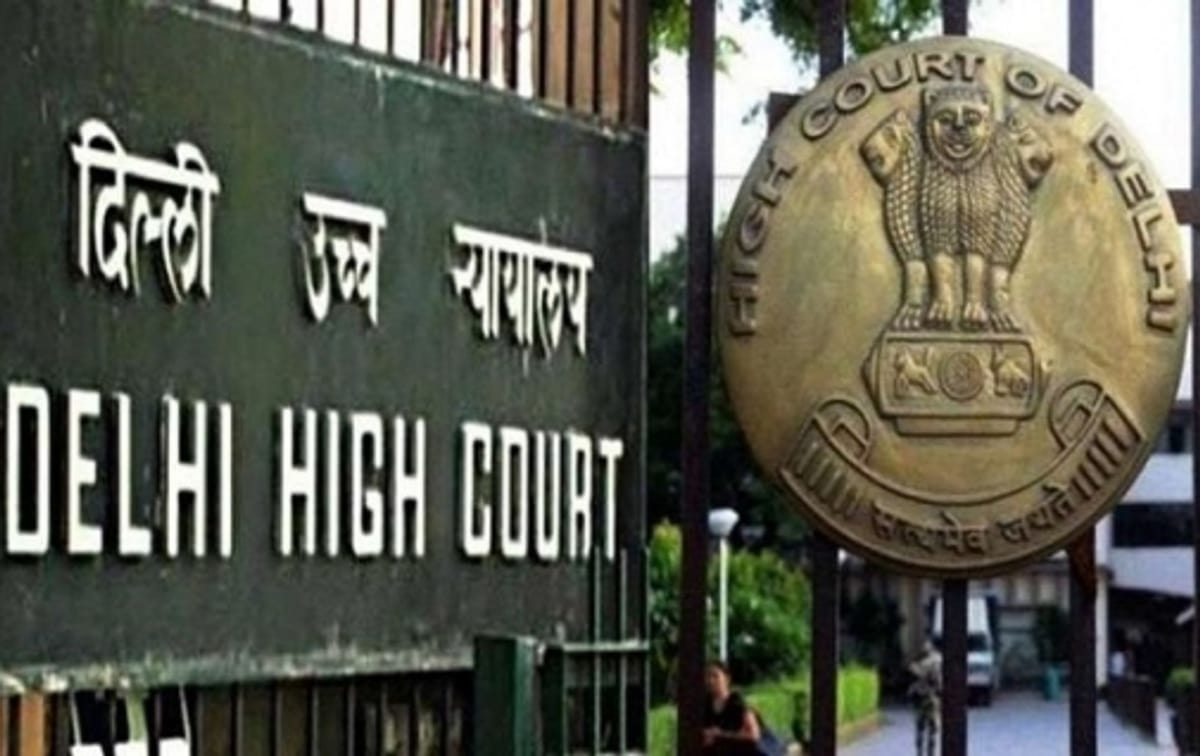The Delhi High Court has taken strong note of an “alarming situation” of passengers not properly wearing masks in flights and issued guidelines to all domestic airlines and DGCA for strict compliance, including penal action for offenders and periodical checks of the aircraft.
Justice C Hari Shankar, who witnessed passengers not wearing masks properly during transportation from airport to the flight and their stubborn reluctance to wear mask properly, took suo motu cognisance of the situation and issued guidelines for immediate compliance.
The high court, in its order passed on Monday, said it was constrained to pass the order because of an alarming situation which was witnessed by the judge himself during the Air India flight from Kolkata to New Delhi on March 5. It was noticed that, though all the passengers had worn masks, many had worn it below their chin and were exhibiting a stubborn reluctance to wear their masks properly.
“This behaviour was seen not only in the bus transporting the passengers from the airport to the flight but also within the flight itself. It was only on repeated entreaties made (by me) to the offending passengers that they condescended to wear their masks properly. On the cabin crew being questioned in this regard, they stated that they had directed all the passengers to wear masks, but were helpless in case they did not comply,” the judge said.
The court said a situation when the country is seeing a resurgence of COVID-2019 cases, after they had shown signs of ebbing, is completely unconscionable. “Passengers in a flight are in a closed air-conditioned environment, and, even if one of the passengers suffers from COVID-19, the effect on other passengers could be cataclysmic. It is a matter of common knowledge that being within arm’s length distance of a COVID-19 carrier, even if he is asymptomatic and is merely speaking, is more than sufficient to transmit the virus,” it said.
The guidelines framed by the court for immediate and strict compliance include that the in-flight crew shall carry out periodical checks of the aircraft to ensure that passengers are complying with the protocol, especially regarding wearing masks.
It is made clear that masks should be worn as directed by governmental instructions, covering the nose and mouth, and not worn merely covering the mouth or below the chin, the court said. The court said if any passenger is unwilling to follow this protocol prior to the flight taking off, he or she should be offloaded without delay.
If despite being reminded, he or she refuses to follow the protocol, action should be taken against the passenger in accordance with the guidelines issued by the DGCA or Ministry of Health and Family Welfare, including placing him or her on a ‘no-fly’ regimen, either permanently or for a stipulated, sufficiently long, period, it said.
The high court also asked DGCA to forthwith and prominently reflect on its website the instructions containing the guidelines and protocols to be followed by passengers and in-flight crew in domestic flights. It also directed the airlines to ensure that written instructions regarding the protocol to be followed by passengers in flight, including the measures that could be taken against them on failure to follow it, are provided to the passengers along with the boarding pass.
“The in-flight announcements which, presently, merely require the passengers to wear masks at all times, should be modified to include a cautionary word regarding the penal action that could be taken against them in the event of default,” it said.
“In order to ensure compliance, DGCA may consider sending random observers on flights, without prior information, who would check to ensure that the COVID-19 protocols are followed in flight.
“Strict enforcement of all penal provisions, which could visit delinquent passengers who refuse to abide by the COVID protocols to be maintained in flight, should be ensured. There should be no relaxation whatsoever in that regard,” the order said. The court noted that DGCA guidelines permit relaxation from wearing masks in exceptional cases and said it should be allowed only after evaluating the necessity of travelling.
It asked the authorities to give adequate publicity to these guidelines and penal action be initiated against the airlines which repeatedly fail to ensure compliance. The court said it does not intend to criticise the efforts made by the governmental authorities in trying to deal with the COVID-19 pandemic which has left everyone befuddled regarding the best possible manner to deal with the crisis.
The court said it is the duty of everyone to contribute towards this end and pointing fingers at the Central and State governments, which have formidable tasks to deal with and are doing all they can, is of no use. “Each of us, as members of a conscious and conscientious citizenry, is required to be sensitive and sensitised in equal measure, and to strain every sinew to keep the pandemic at bay. If the citizenry becomes complacent, no government, howsoever activated and alive to the situation, can help,” it said.
The court said the matter be registered as a suo motu public interest litigation (PIL) and listed before an appropriate bench dealing with PILs on March 17. It asked the DGCA and Air India to file their reports before the bench regarding compliance with the guidelines.
(Source: PTI, Not edited by travelobiz staff)
Follow and connect with us on Facebook, Twitter, LinkedIn, Instagram and Google News for the latest travel news and updates!
Also Read: Abu Dhabi Airport Offers Free RT-PCR Test, Reports In 90 Minutes





